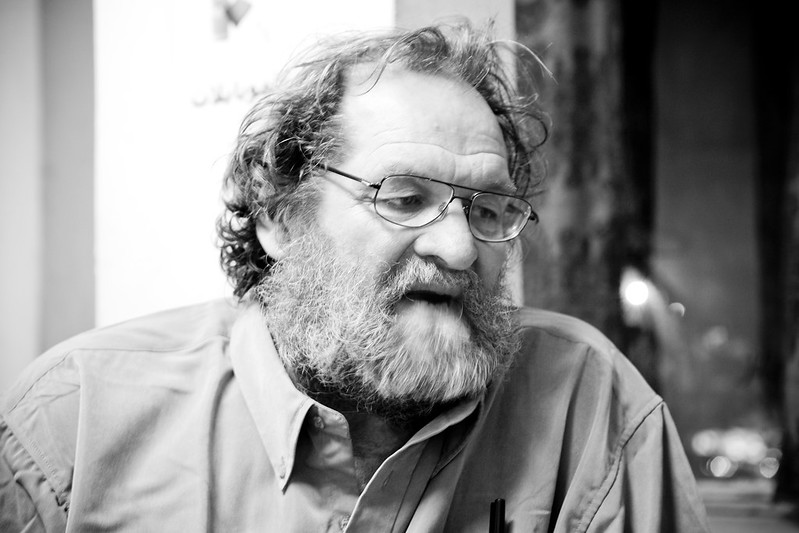In Memoriam: John Molyneux
(1948-2022)

The Marxist writer and activist John Molyneux died in Dublin on December 11 at the age of 74. John was a longstanding member of the International Socialist Tendency, first as a member of the International Socialists/Socialist Workers Party (SWP) in Britain, later as a member of the Socialist Workers Party/Network in Ireland.

John was one of the generation of ’68. He joined the International Socialists in Britain in 1968 after being radicalized by the antiwar movement and the global revolutionary upsurge of that year. He soon became one of the group’s leading theorists and most popular speakers.
His first book, Marxism and the Party (1976), analyzes what Marx, Luxemburg, Lenin, Trotsky, and Gramsci had to say about the question of revolutionary organization and remains relevant for everyone still grappling with that issue. A few years later he published Leon Trotsky’s Theory of Revolution (1981), which discusses Trotsky’s weaknesses as well as his strengths. What is the Real Marxist Tradition? (1983/85) started life as a long article and was later published as a short book—it contrasts Marx’s revolutionary socialism with reformism and Stalinism.
But perhaps John’s biggest contribution was his weekly column, “The ABCs of Marxism,” published in Socialist Worker (UK) for almost 15 years. Some weeks he discussed basic Marxist ideas and history, other weeks he applied a Marxist perspective to a contemporary issue or debate, including debates on the left. John’s columns were a model of clarity—I read them religiously every week in the 1980s and I don’t think I’m the only person who learned a lot of their Marxism from them. Some of the columns were collected into a short book titled Arguments for Revolutionary Socialism (1987) and a pamphlet on The Future Socialist Society (1987).
The clarity of John’s writing was also evident in his talks. I saw him speak many times at the annual Marxism conference in London during the 1980s and 1990s.
John’s prominence as a writer gave him space to sometimes challenge SWP orthodoxy. In the 1980s he argued that, even if women’s liberation is in their long-term interest, working-class men gain immediate benefits from women’s oppression and that revolutionaries had to confront this. In 2004 he spoke out against what he argued was a deficit of genuine democracy in the organization.
But John was always a member of the loyal opposition. In 2012-13, the SWP faced a major crisis following the attempted cover up of an accusation of rape against a leading member. The scandal led many people (including longstanding members such as Colin Barker and Ian Birchall) to leave the organization. By this time, John had retired and moved to Ireland, but—disappointingly, in my view—he defended the party leadership against its critics.
In Ireland he became the editor of the Irish Marxist Review and contributed something substantial to almost every issue. He also continued writing books—including a guide to Marxist philosophy, The Point is to Change It! (2012), Lenin for Today (2017), and The Dialectics of Art (2020)—and contributed a steady flow of articles to the Irish socialist website Rebel. Over the last few years, John also became heavily focused on building an ecosocialist response to the climate crisis and was one of the founders of the Global Ecosocialist Network.
Whatever political mistakes John made, his publications and talks trained thousands of young socialists in revolutionary Marxist politics. As capitalism’s crises grow worse, his voice will be missed.
Featured Image Credit: Photo by Hossam el Hamalaway via Flikr; modified by Tempest.
Categories
We want to hear what you think. Contact us at editors@tempestmag.org. And if you've enjoyed what you've read, please consider donating to support our work:
DonatePhil Gasper View All
Phil Gasper is a member of the Tempest Collective, a long-time activist, the editor and annotator of The Communist Manifesto: A Road Map to History’s Most Important Political Document (Second Edition, Haymarket, 2024), and the editor of Imperialism and War: Classic Writings by V.I. Lenin and Nikolai Bukharin (Haymarket, 2017). He is on the editorial board of New Politics.
